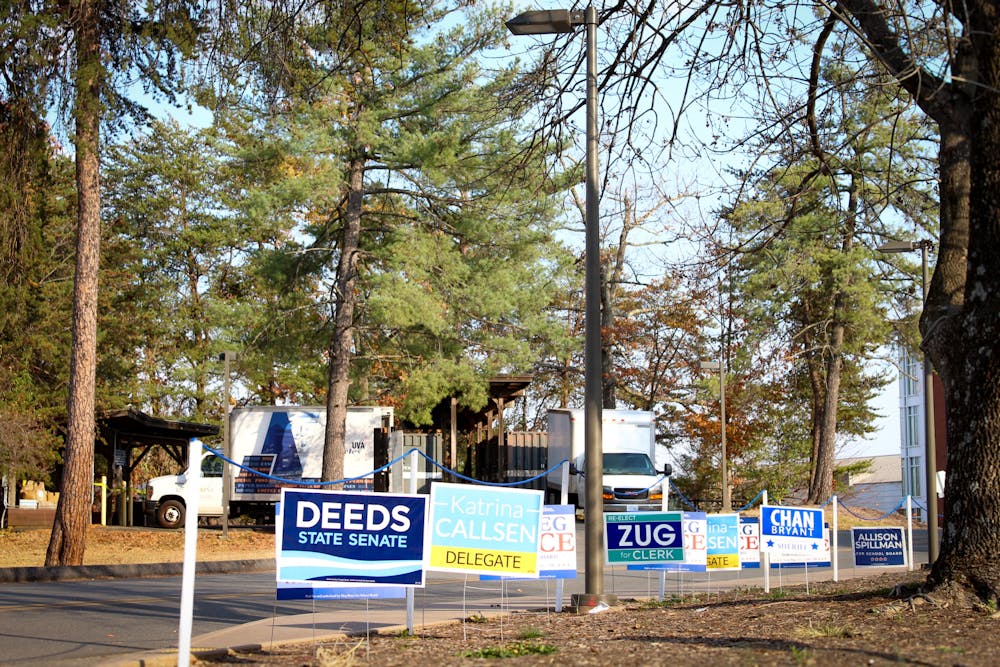Follow the money — or so goes the saying popularized by the Watergate-inspired film “All the President’s Men.” The reelection of State Senator Creigh Deeds is certainly not the tale of political corruption like Nixon — this politician realized the previous error in his ways and mended it to mirror the interests of his voters. For much of his 22-year career in the Virginia State Senate, Deeds aligned himself with several corporate donors, taking advantage of a broken system — Virginia is one of only five states without corporate contributions limits to candidates’ campaigns.
In 2016, however, Deeds did an about-face — stopping donations from utilities firm Dominion Power, from whom he had previously received over $100,000. Deeds remedied previous inaction on campaign finance reform by transforming into a committed voice, voting to limit contributions from regulated utilities and from corporations overall. In cutting off these contributions, Deeds has exemplified how politicians should go from listening to the money to listening to the views of the voters, who overwhelmingly support reducing donations from corporations. We must be focused on pressuring other Virginia politicians — whether it be through questions during their campaigns or columns like this — to have a similar moral turnaround and support campaign finance reform. By doing so, a more substantive political dialogue can be advanced in Virginia, and we voters can ultimately be reprioritized in our own democracy.
Citizens are supposed to be the centerpiece of democracy, but all too often our interests seem secondary to those of corporations and special interests. A reciprocal relationship has developed in which large campaign donations translate to preferential treatment. One need look no further than Dominion, which provides power to two-thirds of Virginia residents and gives more than $1 million a year in campaign gifts to Virginia politicians of both parties. What has Dominion received in response? A legislature that allows Dominion to overcharge Virginians by up to $3 billion on their electric bills. In fact, the state legislature passed Dominion-backed legislation that reduced Virginia’s State Corporation Commission’s oversight on matters such as rate hikes and consumer refunds. This legislation has allowed Dominion to overcharge Virginians with free reign, to where Virginia’s electric bills are the sixth highest in the nation.
This corruptive process where donations buy influence goes well beyond Dominion — Securiport LLC, Zinc Collective LLC and several more firms either directly or through political action committees made donations of over $500,000 this year alone. Corporate contributions are not free money — they come at a price to Virginia voters, literally. Though any election is of course ultimately decided by votes, the increasing necessity to keep up with record state campaign spending necessitates engagement in this transaction with corporations. When corporations are permitted to donate high amounts, it inevitably incentivizes politicians to advance corporate interests over those of Virginia’s voters.
Beyond simply ensuring true representation of our interests in Richmond, campaign finance reform would enable us to engage in a more legitimate dialogue, where politicians speak their minds rather than follow their wallets and interact with our beliefs rather than those of corporations. Well-known satirist PJ O’Rourke once said that “when buying and selling are controlled by legislation, the first thing to be bought and sold are the legislators” — well, when legislators can no longer be bought and sold, the only marketplace left is that of ideas. Removing unlimited corporate donations would ensure that politicians’ platforms are shaped, as they ought to be, by the people. Through this dialogue, politicians will be forced to campaign toward the voters and meaningfully work toward solving issues that affect Virginia’s citizens, even if this goes against corporate interests.
Campaign finance reform is the key to making progress on other hot-button issues that Virginia voters care about. Dominion’s political purchasing power, for example, has not only allowed them to overcharge Virginians, but also to keep open environmentally harmful coal and biomass plants previously slated for closure. Dominion and our legislators are clearly colluding in a manner that harms the health of Virginians and ignores our interest in environmental security. Through campaign finance reform, then, politicians can respond to their constituents rather than cater to corporations.
Article I of Virginia’s Constitution states that “all power is vested in, and consequently derived from, the people” — not corporations. Limiting corporate contributions, as Deeds now supports, is broadly popular — 75 percent of Virginians support such a measure. What is more, the issue marks a bipartisan opportunity in an increasingly partisan climate, with over two-thirds of Republicans, Democrats and Independents all in support. With such backing, and with campaign finance reform being so broadly important to the interests of all Virginians, we must pressure politicians to follow in Sen. Deeds’ footsteps and carry our voices and views to Richmond along with our votes. If they do not comply, it will be time in the 2027 Virginia Senate elections to vote out these supposed representatives, just as it was time for Nixon to resign in 1974.
Wylie Brunman is a Viewpoint Writer who writes about Politics for the Cavalier Daily. He can be reached at opinion@cavalierdaily.com.







